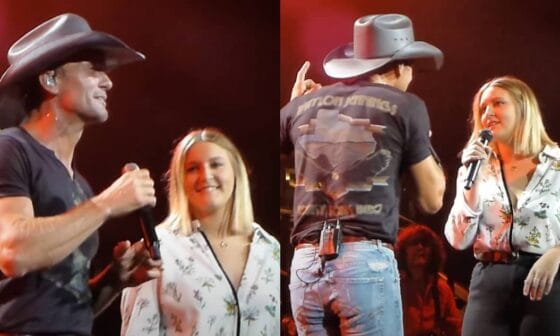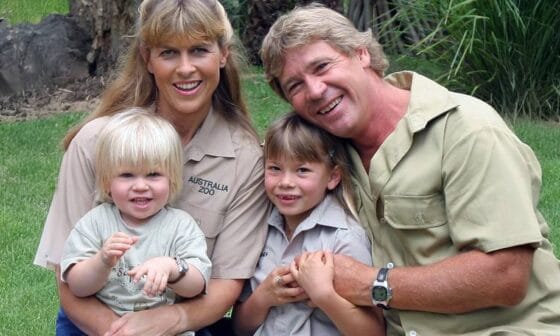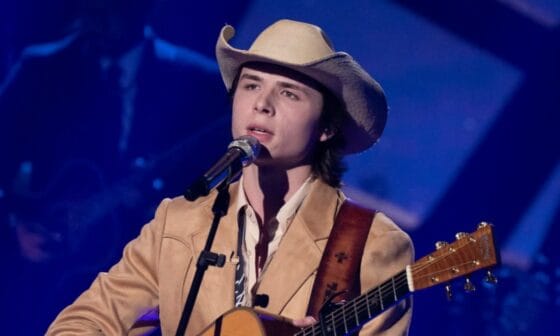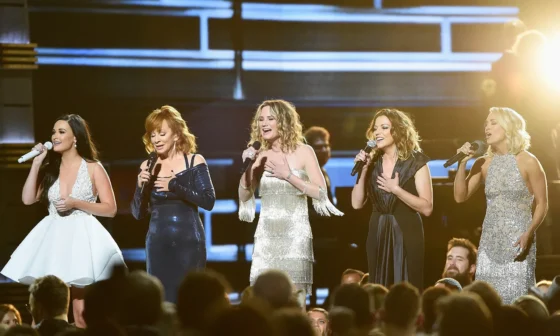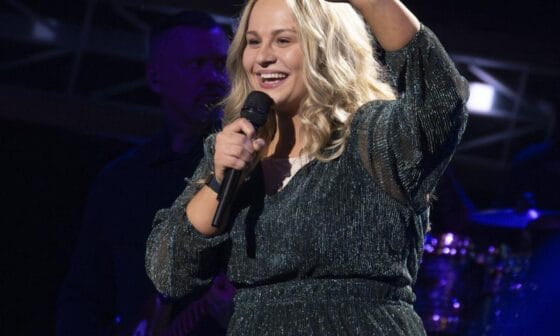
“Hello, I’m Johnny Cash.” For decades, those four words were more than an introduction — they were a promise. A promise of grit, truth, and soul-deep music from the Man in Black. And in July 2003, when he spoke them one last time on a small stage in Virginia, they carried the gravity of a lifetime filled with pain, passion, and profound love.
This wasn’t a concert at Madison Square Garden or a grand farewell tour. Instead, Cash chose the Carter Family Fold in the hills of Virginia, a modest venue steeped in history and heart. The choice was deeply symbolic. Just two months earlier, he had buried June Carter Cash, the love of his life and a cornerstone of his world. Returning to the Carter family’s home stage wasn’t simply a booking — it was a pilgrimage. A final, public act of devotion to June, to the family that shaped her, and to the music that bound them together.
By then, Johnny’s health was failing. He was battling a neurodegenerative disorder, plagued by recurring bouts of pneumonia, and weakened by years of hardship. Many thought his performing days had long since ended. Yet that night, with the help of a wheelchair and sheer determination, he stepped into the spotlight one last time. Frail in body but fierce in spirit, Cash gripped his guitar, pulled a pick from his pocket, and gave everything he had left.
The set was stripped down, raw, and searingly honest. His voice, roughened by illness and laryngitis, was no longer the thunderous instrument of his youth — but in that rasp lay something far more powerful. Each lyric felt carved from bone and memory. Songs like Folsom Prison Blues carried the grit of survival, while I Walk the Line, sung through grief, became an unspoken hymn to June. Every chord was weighted with love, loss, and the stubborn resilience that had defined his life.
Audience members knew they were witnessing something far beyond a performance. This wasn’t about ticket sales or showmanship. It was about a man standing at the crossroads of mortality, choosing to give himself fully to the music one last time. The room, intimate and quiet, became a sanctuary where grief and grace intertwined. June’s presence was palpable, as if her spirit lingered in every note he sang.
That evening, Johnny Cash transformed frailty into strength. His weathered voice and trembling hands told a story more eloquent than perfection ever could. He stood not as a fading star, but as a monument to endurance — proof that music, at its truest, is not about polish but about truth.
When the final note faded, it was more than the end of a show. It was the closing chapter of a love story, a goodbye written in melody, and a reminder that legacies aren’t measured by longevity but by depth. For those who were there — and for those who still listen to the echoes of that night — Johnny Cash’s last bow was not just a farewell. It was a love letter, etched in song, to June, to his audience, and to life itself.
